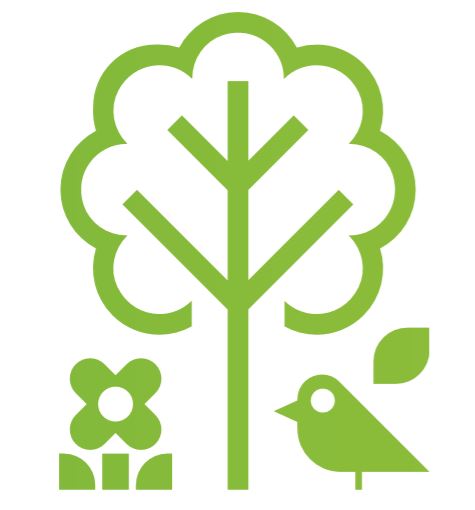
Please note, BUSS® and the BUSS Model® are registered trademarks and must be used in line with the protocol below.
Only Accredited BUSS® Practitioners can offer BUSS® as a therapeutic intervention, assessing and working with individual children, young people and their families. Further details of the accreditation process can be downloaded as a PDF here. While we are keen to train suitably experienced practitioners in BUSS®, we remain passionate about maintaining the highest standards for practise, and ensuring the best service for children, young people and their families.
The register of Accredited BUSS® Practitioners is held by BUSS® Model Ltd. If you have been offered BUSS® by a practitioner who is not listed on this register, please inform us as soon as possible (email: info@bussmodel.org or call: 01423 276203). They are not qualified to deliver this intervention.
To ensure ongoing fidelity to the model and high standards of practise, Accredited BUSS® Practitioners must be supervised by Consultants in BUSS® and renew their registration every four years. A register of BUSS® Consultants is available here.

There are two training pathways in BUSS®, depending on an individual’s core training, experience and the needs of an organisation. The training programme has been carefully designed so that training is appropriate for practitioners from a range of backgrounds, ensuring that the fundamental ethos of the intervention as well as its application, are taught and faithfully implemented by trained practitioners. Sarah Lloyd, the author of the model, leads the training team which comprises Accredited BUSS® Practitioners and Consultants, BUSS® Parent Mentors and BUSS® Groupwork Practitioners.

Prerequisites:
To train as an Accredited BUSS® Practitioner you must have a core training in either Social Work, Clinical or Educational Psychology, Occupational Therapy or Child Psychotherapy. There may, on rare occasions, be an exception to this, e.g. a practitioner who is a Certified Theraplay® Practitioner working within a Multidisciplinary Team. In such circumstances, decisions will be made on a case by case basis, but the key factor will be the person working within an appropriate Multidisciplinary Team.
It is recognised that a lot of skilled and experienced practitioners working with children who have experienced developmental trauma do not have a core clinical or Social Work training. With this in mind, we have developed an arm of training that builds on Level One BUSS® training to train practitioners to follow a manualised programme for a BUSS® preschool group (Training as a BUSS® Groupwork Practitioner). This group is designed for preschool children and their foster carers or adoptive parents but can also be adapted for use within an education setting. There are further details of the training and supervision requirements below.
Introduction to BUSS® Webinar and Level One Training
These trainings are the starting point for both training pathways and open to everyone who is interested in learning more about BUSS®, either as a parent or carer, or in a professional capacity, as a way of working with children who have experienced developmental trauma and their families. Successful completion of Level One BUSS® training can be useful to parents, educators, clinicians and managers working in this field but does not equip participants to practise BUSS® or use the term ‘BUSS® Informed Practitioner’.
Level Two training
Participants with the prerequisite core professional training (please see Pathway One prerequisites above) who have attended the Introduction to BUSS® webinar and successfully completed Level One BUSS® training can apply for Level Two training. The Level Two training is a step towards the supervised practicum stage of training to become an Accredited BUSS® Practitioner.
Please note that, at this time, it is not possible to progress to the Level Three BUSS® training without a core training in one of the professions listed above. Therefore, unless there are exceptional circumstances, we would advise those participants without such a core training not to train beyond BUSS® Level One.
Successful completion of Level Two training involves participation in the training days and completion of assignments between day two and day three of the training. The task is to record themselves as they practise administering the BUSS® assessment on two typically developing children aged between 5yrs and 18yrs, including reflection on their practise. These must be submitted to the trainers for successful completion of this level of training.
Following successful completion of Level Two, it is appropriate to use the term, ‘BUSS® Informed Practitioner’. It is hoped that this level of understanding and knowledge will enrich the practice of Social Workers and other clinicians, but it does not equip participants to use BUSS® as an intervention with the children and families they are working with. However, it does equip them to:
Level Three Training
Following successful completion of Level Two and its associated assignments, practitioners can apply for the supervised practicum part of training. This is the final part of the training towards becoming an Accredited BUSS® Practitioner, enabling practitioners to use BUSS® as an intervention with the children and families they are working with and use the term Accredited BUSS® Practitioner.
As well as a core clinical or Social Work qualification as outlined above, practitioners must be able to demonstrate extensive experience of working with families. It may be that it is necessary for an individual practitioner to undertake further training in a related field (e.g. DDP Level One) if their experience has been predominantly in treating children and they are less experienced in working with families.
As part of the application process, applicants will be required to show evidence of registration with their professional body, give details of their working environment, provide evidence of current professional indemnity insurance and be registered with the DBS online update service.
Level Three training starts with an introductory training session which is delivered remotely. Following this, participants will work sequentially with four families (children aged between 5yrs and 18yrs) using the BUSS Model®, from the start to the end of the intervention. A BUSS® intervention typically comprises nine sessions over four months and it is likely that this part of the practicum will take about eighteen months to complete.
Supervision will be a combination of individual supervision, at which practitioners and their BUSS® supervisor will watch the recordings of the sessions, reflecting on the practitioner’s analysis of their practise, and group supervision. The supervisor will offer help and support in designing and implementing BUSS® with the family, including the writing of reports. Alongside this, practitioners must attend monthly group supervision sessions at which they will be expected to share recordings and learnings from their practise. There will be a BUSS® Parent Mentor in these groups to offer their expertise and lens.
It is likely that individual and group supervision will take place over Zoom but this could be face to face if proximity to a BUSS® Consultant allows.
Following successful completion of the Level Three BUSS® training, practitioners are entitled to be on the register of Accredited BUSS® Practitioners which is held and administered by BUSS Model® Ltd. A fee for the administration of the accreditation is payable on completion of the practicum (£30 plus VAT). The cost of membership of Accredited BUSS® Practitioners is £50 plus VAT, payable at the point of registration and every 4 years thereafter.

“Thank you all for your amazing support all the way through – the training and supervision is fantastic and so thoughtful. Honestly the best training I have done!”
– Aeron, Senior Occupational Therapist & BUSS Level 3 Trainee
It is necessary for there to have been some discussion with Sarah Lloyd about the feasibility of running a group within an organisation before attendance at this training. This allows for consideration of individual circumstances and the suitability of running the group in that particular setting. Generally, if it is an education setting, there needs to be evidence of a culture of trauma informed training and practise within the organisation. The therapy setting needs to be a multidisciplinary team.
This training builds on Level One training and comprises a one day training and subsequent supervision. At the one day training, practitioners will be given the resources needed to run this twelve week group. This will include detailed instructions about the content and running of each session, descriptions of activities and resources required, as well as weekly handouts for parents or carers.
Supervision for the group programme will be every two weeks for the first group and thereafter the frequency of supervision can be negotiated between the BUSS® supervisor and group facilitators, but will never be less than three sessions of supervision per programme.
Sessions must be videotaped and recordings sent to the BUSS® supervisor to watch before supervision. It is the responsibility of the organisation to obtain consent from parents / carers / Social Workers for this and it must be presented to BUSS Model® Ltd before commencement of the group. BUSS Model® Ltd uses a password protected Dropbox account for all of its clinical and supervision activities.

To ensure fidelity to the model and to use the title of Accredited BUSS® Practitioner, practitioners must maintain their accreditation. In order to do this, it is necessary for practitioners to:
If you wish to read more about the accreditation and renewal process, please download the PDF document here.
Fidelity to the model and standards of practise
Any Accredited BUSS® practitioner whose practise is deemed to fall short of the standards required of a BUSS® Practitioner, or whose practise brings the model into disrepute, will be removed from the register of Accredited BUSS® Practitioners.
BUSS® is working hard to respond to the high demand for training. All information is correct at this time but may be subject to change in the future. Any queries about this process should be directed to Sarah Lloyd, Director of BUSS Model Ltd: sarah.lloyd@bussmodel.org
Date: 16/06/2023

If you would like to search for anything on our website, please type here and click ‘search’